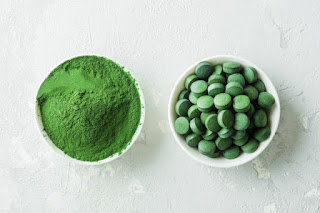Spirulina algae grow in the oceans and salt lakes, and it is considered one of the most miraculous foods because it contains many benefits and nutrients.
Here are the most important ones.
Today, people tend to search for supplements and nutrients rich in vitamins and minerals as a form of compensation for the poor food industry.
But what is spirulina, and do our bodies actually compensate for it?
What is spirulina?
Spirulina is a bluish-green algae species that grows in nature in the oceans and salt lakes in subtropical climates.
Today, spirulina is considered a superfood because of its richness in plant pigments and its high ability to perform photosynthesis. The World Health Organization also allowed them to be used as natural food dyes.
Spirulina benefits
Spirulina has so many advantages that it can actually be on the throne of superfoods and benefits:
Spirulina is rich in vitamins and minerals
One tablespoon of dried spirulina powder, equivalent to approximately 7 grams, contains a massive amount of vitamins and minerals:
Protein: 4 grams.
Vitamin B1 (thiamine): 11% of the body’s daily need.
Vitamin B2 (riboflavin): 15% of the body’s daily need.
Vitamin B3 (niacin): 4% of the body’s daily need.
Copper: 21% of the body’s daily need.
Iron: 11% of the body’s daily need.
It also contains important amounts of magnesium, potassium and manganese.
All of this benefit comes with only 20 calories and 1.7 grams of digestible carbs

